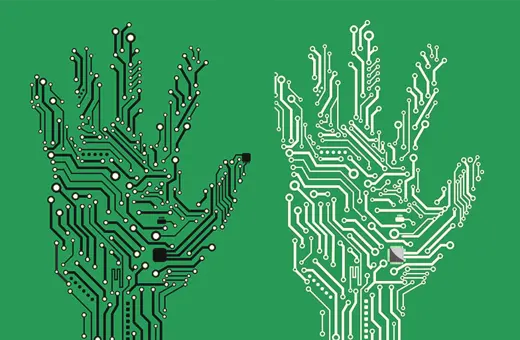AI and the internet have given us more access to data than ever before. Yet we sit on this wealth of knowledge and do nothing with it. Italian philosopher Maurizio Ferraris argues for a radical reform of the internet grounded in his new realist philosophy. He proposes a system of "webfare" where institutions cash in on the data troves they posses and redistribute profits to those in need. The digitalisation of everything in the modern world can often feel like a curse. Yet Ferraris offers hope for a future in which the internet can become the basis for a decentralized and more equitable society.
Let’s start with the metaphysics behind your theory. What is a social ontology?
It is an ontology that takes this interview, for instance, seriously. An interview is not something that we can touch. It exists only if it is recorded. If the recording of an interview does not work, the interview disappears.
It always works this way. What applies to an interview also applies to a marriage, a bank account, even a promise. We, for instance, promised to see each other today at 6pm. This is not something that merely circulates in our minds. It is something that exists in the world. For instance, if my train were delayed, I would have had to call you, reach you in some way to tell you, sorry, my train is late. It would have been unacceptable for me to simply disappear without saying anything.
This shows us that often philosophers misunderstand the nature of social ontology. For instance, a great philosopher like David Hume said that a promise is the expression of our will. But it’s not simply an expression of our will. Because once I make a promise, that which I promised no longer depends merely on my will – I could obviously decide to be a liar, to not keep my promises and so on. But the fact remains that that which I promised remains recorded, as banal as it may be. Let’s go to the cinema tonight. If you change your mind and no longer want to go to the cinema, you must inform the other.
So how is it that we are so bound by invisible things? They are invisible and intangible, though the bases on which our actions (actions which become objects) are then recorded are neither invisible nor intangible.
___
As we know, we have never produced as many documents as we do now. The main characteristic of the digital age is the fact that everything that passes through the digital realm gets recorded.
___






















Join the conversation